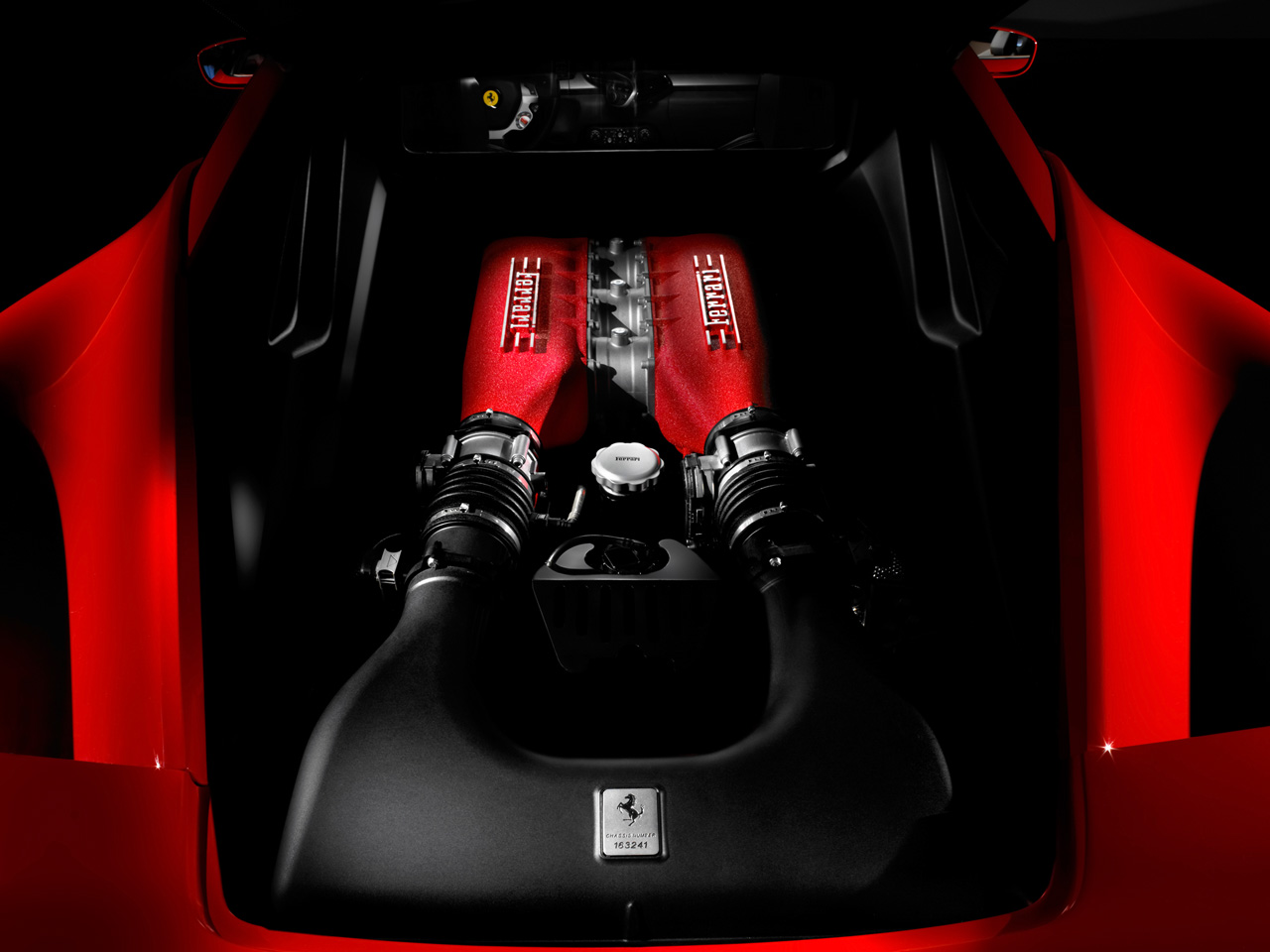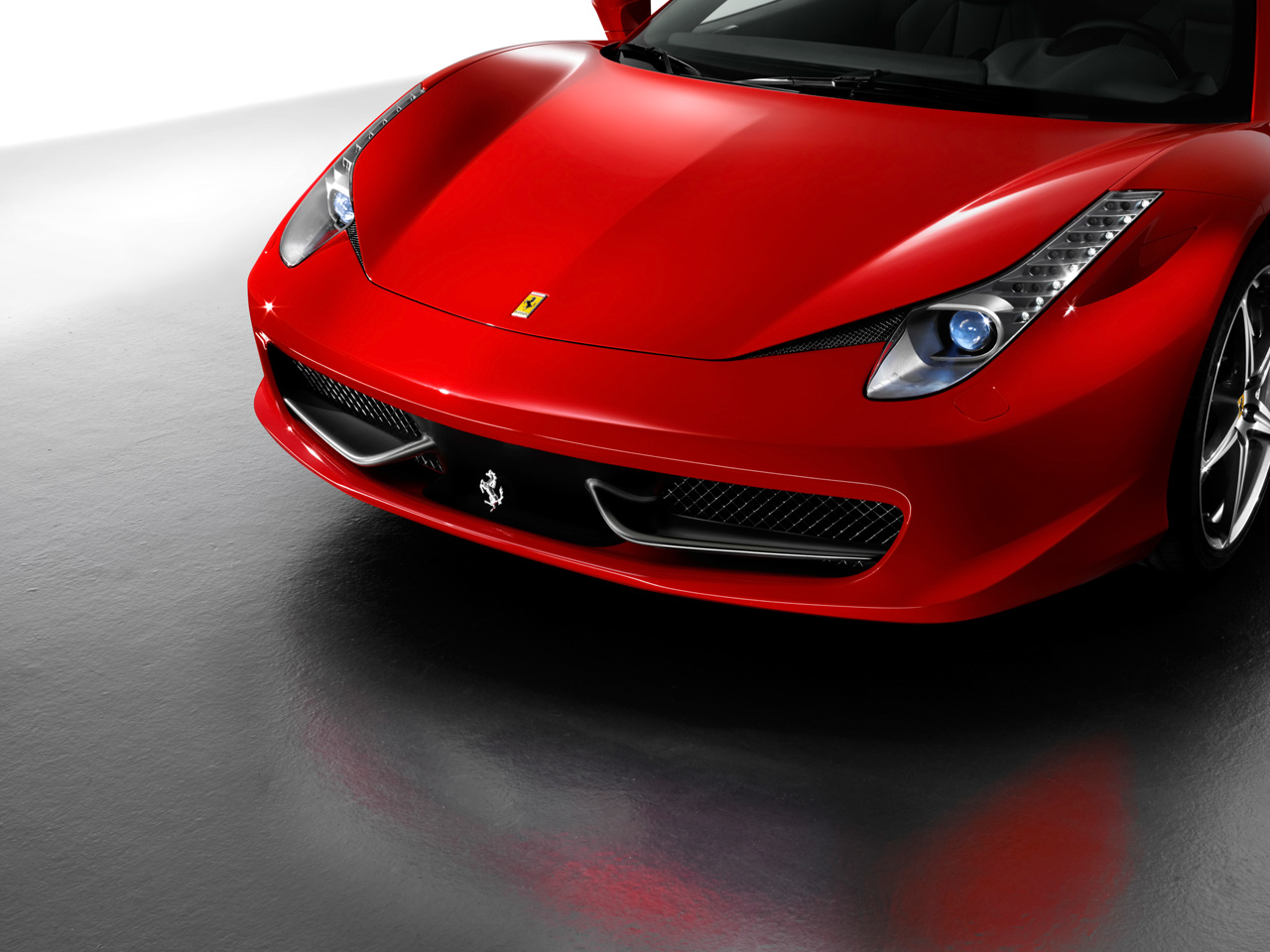2010 Ferrari 458 Italia
|
Price |
-- |
Production |
-- | ||
|
Engine |
4.5 liter V8 |
Weight |
3042 lbs | ||
|
Aspiration |
natural |
Torque |
420 lb-ft @ 6000 rpm | ||
|
HP |
570 hp @ 9000 rpm |
HP/Weight |
5.3 lbs per hp | ||
|
HP/Liter |
126.7 hp per liter |
1/4 mile |
-- | ||
|
0-62 mph |
3.4 seconds |
Top Speed |
201 mph |
(from Ferrari Press
Release) Maranello, 27 August 2009 In the run-up to the
official unveiling of the Ferrari 458 Italia at the Frankfurt Motor
Show on the 15th of September, enthusiasts can find out more about
the car on www.ferrari.com. There they will find the first
photographs of the 458 Italias interior and of the steering wheel
and instrument binnacle which represent a significant step forward
in the concept of the ergonomic interface between driver and car.
In fact the main commands are now grouped on the steering wheel, the
secondary commands are handily set in two satellite pods either side
of the dash and there are now comprehensive instrument displays on
the panel ahead of the driver. These solutions represent an
important safety aspect, enabling the driver to concentrate fully on
driving. Similarly this layout ensures maximum control of the car in
highperformance driving, an uncompromising approach that derives
directly from Ferraris F1 experience.
Working closely with the Ferrari Styling Centre, the engineers have
thus reinterpreted the positioning of the major commands to provide
a truly driver-oriented cockpit. All steering-column mounted stalks
have been eliminated, with the indicators, full beam, flash and
windscreen wiper functions now being activated by buttons on the
steering wheel boss. The button to select the shock absorber setting
is now positioned next to the Engine start button where it falls
readily to hand. Behind the wheel are a number of secondary
functions, such as the stereo, while the gearbox paddles are now
longer making shifts even easier from any steering angle.
The right-hand satellite pod on the dash incorporates controls for
the infotainment, the Bluetooth connection, sat-nav, digital speedo
and rear parking camera. Clustered on the left-hand satellite pod
instead are the optional cruise control, buttons for choosing the
video setting of the left-hand dash TFT screen and the on-board
computer interface. The latter controls the trip computer, the
Vehicle Dynamic Assistance and the display of the cars set-up.
The Vehicle Dynamic Assistance monitors the operating parameters of
the most important areas of the car - engine/gearbox, tyres and
brakes. The VDA is enabled in the following manettino settings
Race, CT off and CST off and provides visual confirmation of the
status of each component based on an algorithm from parameters
reading lateral and longitudinal acceleration, revs and speed. This
enables the driver to assess the ideal operating conditions for the
car. There are three status settings: WARM-UP (operating temperature
too low), GO (ideal operating conditions) and OVER (one or more
components are no longer at their optimum level and need cooling).
Along with the photos now on-line, the Ferrari site also includes an
exclusive videointerview with Paolo Pininfarina, Chairman of
Pininfarina S.p.A., who provides indepth insight into the 458
Italias design philosophy and exterior styling. The next release on
www.ferrari.com will include an analysis of the cars performance
characteristics with an interview with seven-times F1 World Champion
Michael Schumacher.



